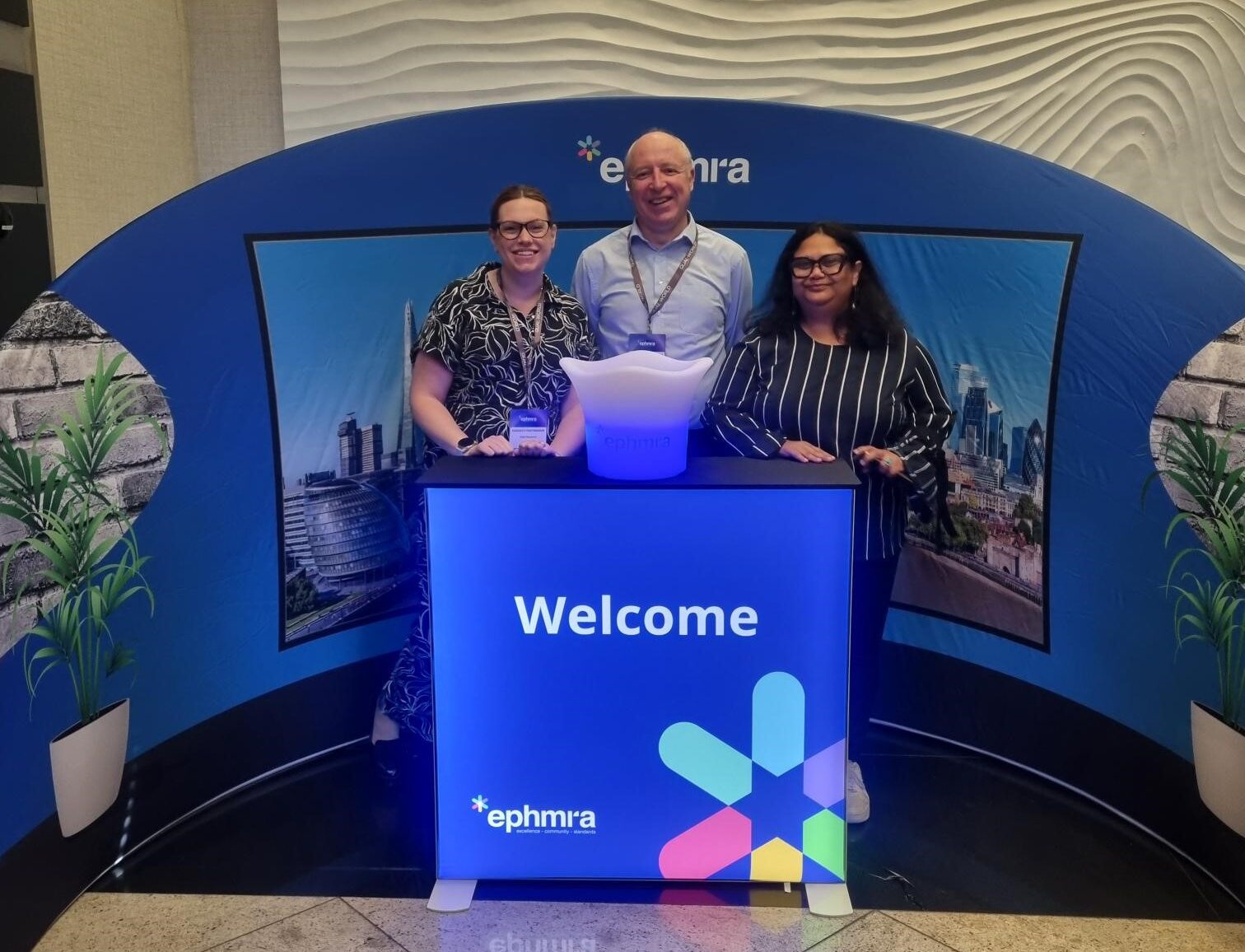It’s not either/or: Integrating AI and Empathy in Healthcare Market Research
 Richard Head / 16 July 2025
Richard Head / 16 July 2025We recently attended the EPHMRA Annual Conference, serving as both a professional reconnection and a timely reflection on how rapidly the healthcare market research landscape is evolving. The conference provided a great opportunity to engage with clients and peers, take a step back from day-to-day work, and consider the future of market research in the age of AI.
We were privileged to present a paper with Mattias Blomgren from J&J on elevating brand tracking through large-scale standardization and the associated change management to make it successful, generating insights more quickly and make them easier to act on.
AI Is Here to Stay: Embedding Intelligence into Everyday Research
This year, one theme cut through everything: AI is no longer on the horizon. It’s here, and it’s already reshaping our work. From AI-assisted moderators to interactive avatars and synthetic personas, the industry is actively redefining how research gets done.
It was reassuring to see so many of the tools we’ve already been using within our own teams now gaining wider traction, reinforcing our belief that AI can and should be embedded in day-to-day research to drive value at scale. We’re now using these technologies to simulate HCP interactions, uncover richer insights and scale understanding with speed and consistency.
The Power of Human-Centered Storytelling
But here’s the thing: while the tech is accelerating, the conversation often remains cautious. Many of the papers focused on how AI can complement existing research methods, not replace them. Of course, no one wants to be reckless. But too often, it feels like as an industry we are still sitting on the fence. If AI truly has the power to unlock richer insights, faster and at scale, then why aren’t we embracing it more boldly as a transformational force?
Some of the most powerful moments of the conference came not from data or automation, but from human experience. From Stephen Potts’ moving personal account of his own patient journey to our colleague, Mandira Kar’s compelling work with Sanofi on the emotional and cultural drivers of treatment adherence through ethnography and behavioural science, these stories reminded me why we do this work. And why the human voice still matters.
This question gets to the heart of what we believe: Powered by people and assisted by AI, remains central to our philosophy. But embracing AI doesn’t mean handing over the reins. It means being bold in adopting new tools while being equally deliberate about how we retain the human element that makes research meaningful.
Redefining the Human Researcher in the Age of AI
And that’s the tension we’re all navigating: as AI handles more of the work we once did manually, what exactly is the role of the human researcher? Until recently, we didn’t have to justify the “human touch.” Now, in the age of AI, we do.
The irony is: we’re using AI to fix many things that make us human – bias, inconsistency, blind spots. So maybe the goal isn’t to preserve our humanity in market research, but to redefine it. AI is freeing us to do what we do best: interpreting, empathising, and bringing meaning to complexity. What if being more human in research now means being more curious? More inclusive? More emotionally intelligent – with the help of AI?
The conversations at EPHMRA left us with that thought. AI is not just transforming how we work. It’s inviting us to reimagine who we are as researchers.
Contact us to find out more.

Other insights.
Jump to a slide with the slide dots.
The Evolution of Qualitative Research to Support Strategic Decision-Making
Discover how agile, AI-powered qualitative research delivers rapid, strategic insights that drive smarter decisions in global healthcare.
Read moreAI Avatars Are Progressing Healthcare Market Research
Discover how AI avatars are transforming healthcare market research with immersive stimuli, interactive simulations, and real-time insights for better
Read moreHarmonized Pharmaceutical Brand Tracking Across Your Portfolio
Harmonize pharma brand tracking to unify insights, boost agility, and drive strategic decisions across your entire portfolio.
Read moreSign up to receive Rapport.
Rapport is our monthly newsletter where we share our latest expertise and experience.